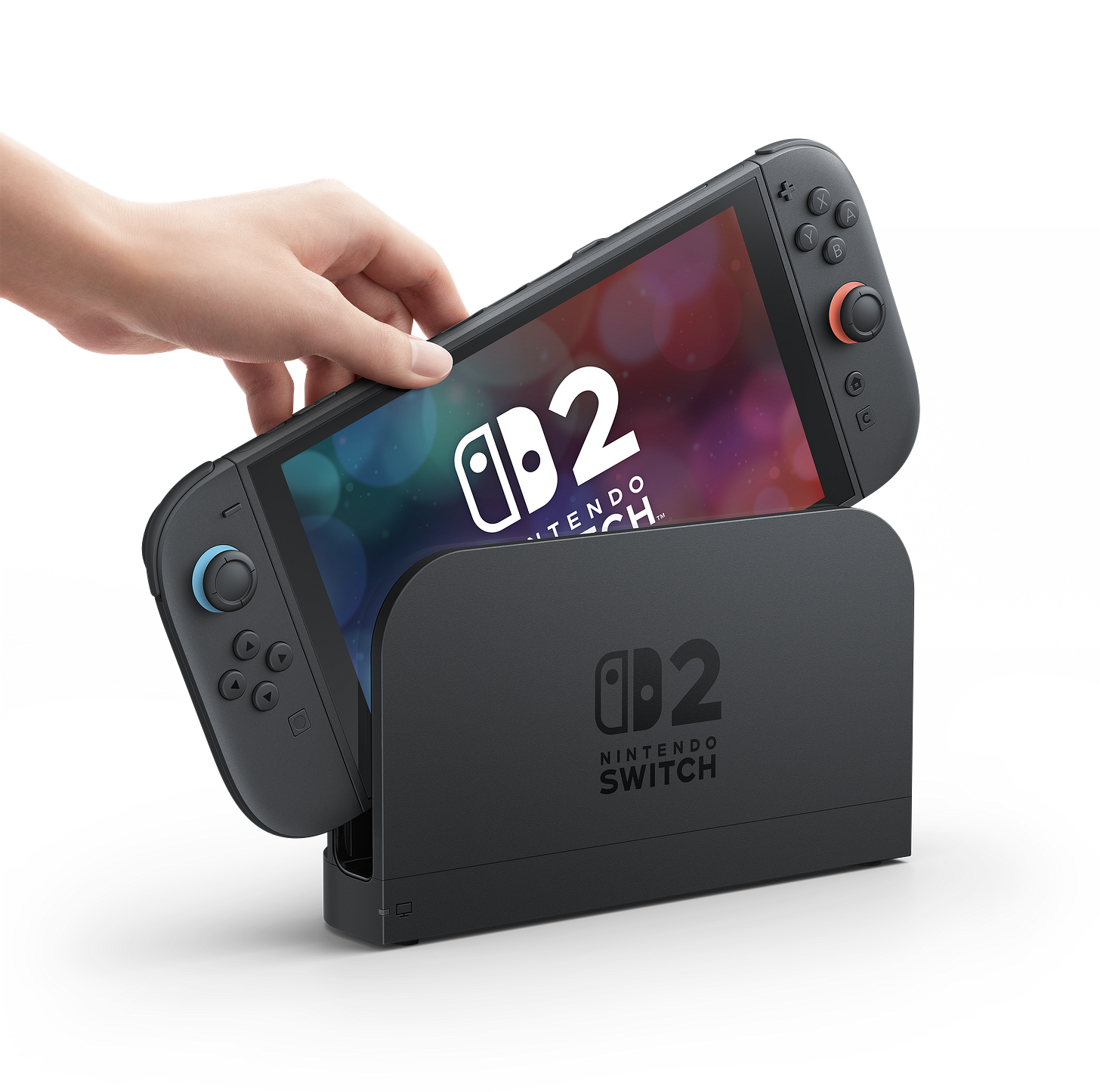Trump’s tariffs: Video games braced for job losses, higher prices and falling investment
US Trade body ESA eager to find a solution with US Government
The Entertainment Software Association is speaking to media on the potential serious consequences on the video game industry following the tariffs announced by the US Government yesterday. Here’s what ESA SVP Aubrey Quinn told me in a phone call earlier today.
Update (04/04/2025): Since publication, Nintendo has delayed pre-orders of its Switch 2 console to assess the impact of the tariffs. The company insists the console will still launch on June 5, 2025.
Original Story: It was supposed to be a day of celebration for the console game industry.
2024 was a tough year for PlayStation, Xbox and Nintendo, with spend on hardware down 29%, according to Circana. But 2025 was meant to spark a recovery, with the launch of Nintendo Switch 2 entering the market, and Grand Theft Auto 6 boosting sales of PS5 and Xbox machines later in the year.
Yesterday saw the reveal of Nintendo Switch 2, a far more powerful sequel to one of the most successful games machines of all time. The reveal featured some 50 titles, from numerous publishers and developers, who are all looking to benefit from the new machine.
However, hours after the reveal came a shocking blow from Washington. A slew of tariffs was announced, including large levies on goods coming from Vietnam, China, Japan and other place where video game hardware is manufactured. Vietnam is where Nintendo Switch 2 is being made, and has been hit with a 46% tariff.
“What was announced yesterday will have a real and detrimental impact on the video game industry,” says Aubrey Quinn, who is a Senior Vice President at the Entertainment Software Association, which is the US video game trade body.
The challenge is that video game consoles, in particular, are typically low margin products. The idea is to keep hardware costs low, so that more consumers can afford the machines and revenue is made up through the sale of software and add-on products. Therefore, tariffs such as these will have a significant impact on the profitability of the devices, and will likely result in price increases for consumers.
“What was announced yesterday will have a real and detrimental impact on the video game industry”
“There are such razor thin margins on consoles and other video game playing devices, it is hard to imagine that there won’t be an effect on the entire ecosystem,” Quinn explains.
“Does that mean potentially increase of prices on consumers? Does that mean fewer new devices sold? Does that lead to an impact on jobs and job creation? Does it mean companies are having to invest less in research to create new games? To invest less in new types of games? And [will it impact] what they’re able to do in terms of investments in innovation and investments in R&D for new products, new graphics cards? All of this ecosystem is ultimately affected by consumer confidence and consumer investment, which allows companies to invest in creating new things.”
As a mostly digital industry, the video games themselves are somewhat protected from the tariffs, although boxed software will be impacted. This is particularly notable for Nintendo Switch 2, where the cartridges are manufactured in Japan, which has been hit by a 24% trade tariff. Nintendo has already announced cheaper prices for the digital versions of Switch 2 games, although it’s not clear if this is related to tariffs.
Ultimately, it's what these games are being played on – consoles, PC, mobile, VR headsets -- that will suffer the most.
“For the most part none of these devices are made in one place,” Quinn explains. “It’s not like there is a console factory that is pumping out every piece of a console. All modern consumer electronics, including video game devices, are made with parts from multiple countries of origin. That means that any one final product is likely to be subjected to many of the tariffs yesterday, and they will all be compounded on top of one another. And that is due to the main tariffs actions, the fact that products involve parts from multiple markets, and also products cross the border multiple times before it is a final product.”
She adds: “Given the changes and announcements yesterday, we expect a ripple effect on the entire ecosystem. And that is going to impact players, it is going to impact jobs supported by the industry here in the US, and the ability for the companies to invest in development, research and future innovations.”
“Now we watch and wait, because there is a risk of retaliation from other jurisdictions. Plus, the administration has suggested there will be future tariffs and levies”
And it’s not over, Quinn says.
“Now we watch and wait, because there is a risk of retaliation from other jurisdictions. Plus, the administration has suggested there will be future tariffs and potential levies, so this a topic and issue that we really need to keep a close eye on. We don’t think that yesterday was the end of the story.”
Of course, what the US Government wants is for video game companies to make their hardware in the US, but Quinn says that is not an easy fix.
“Supply chains are complex,” she tells The Game Business. “They take a long time to set-up. Factories don’t appear overnight. Supply chains don’t change overnight. And so regardless of where individual companies decide to make investments, if someone decides they want to build a factory, a plant, change shipping routes… whatever that looks like… that is going to take time to do. So there will be immediate impacts that, regardless of the long-term decisions, will be felt in the short term.”
The ESA doesn’t make recommendations to its members in terms of business decisions, but says “it’s wise counsel not to make knee jerk reactions to any one announcement.”
Instead, the ESA is very eager to work with the US administration to try and find a way forward that can protect jobs and consumers, whilst also enabling the Government to achieve its policy objectives.
“The ESA continues to work with the administration, to reach out to have conversations with the administration, to open doors where it makes sense for them to have conversations with consumers, with businesses who would be impacted, to talk with other elected officials,” Quinn says.
“We remain optimistic that there will be a solution that doesn’t damage our industry, other industries or hurt American consumers. And in the meantime, remain partners to anyone who is looking for partners in finding solutions, and continuing to represent the best interests of the industry.”
I had to ask, what makes Quinn and the ESA ‘optimistic’?
“My love of America, sir. My undying love and faith in my country is my honest answer.”







"love and faith" are reasons i expect from religious groups, not trade associations